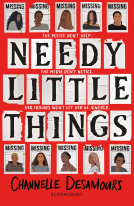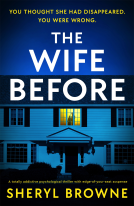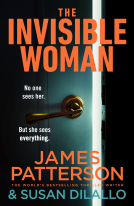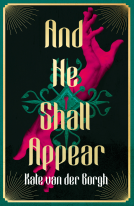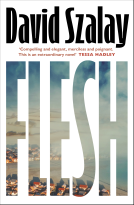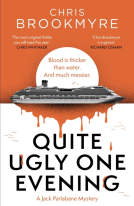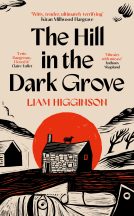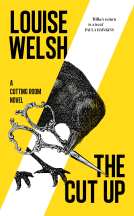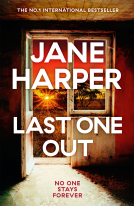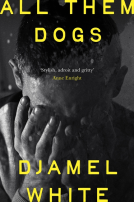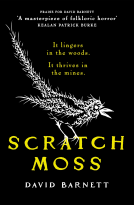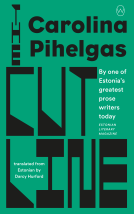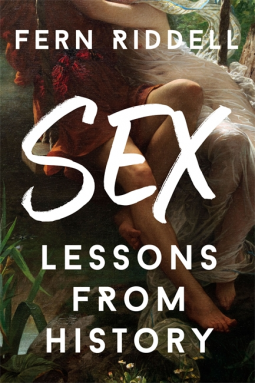
Sex: Lessons From History
by Fern Riddell
This title was previously available on NetGalley and is now archived.
Send NetGalley books directly to your Kindle or Kindle app
1
To read on a Kindle or Kindle app, please add kindle@netgalley.com as an approved email address to receive files in your Amazon account. Click here for step-by-step instructions.
2
Also find your Kindle email address within your Amazon account, and enter it here.
Pub Date 3 Jun 2021 | Archive Date 4 Jun 2021
Talking about this book? Use #SexLessonsFromHistory #NetGalley. More hashtag tips!
Description
Out now: the new book by Dr Fern Riddell, a powerful and entertaining history of sex.
__________
These are the facts: throughout history human beings have had sex. Sexual culture did not begin in the sixties. It has always been celebrated, needed, wanted and desired part of what it means to be human.
So: what can learn by looking at the sexual lives of our ancestors? What does it tell us about our attitudes and worries today, and how can the past teach us a better way of looking forward?
In this wide-ranging and powerful new history of sex, Dr Fern Riddell will uncover the sexual lives of our ancestors and show that, just like us, they were as preoccupied with sexual identities, masturbation, foreplay, sex, deviance; facing it with the same confusion, joy and accidental hilarity that we do today.
Sex: Lessons from History is a revealing and fascinating look at how we've always been obsessed with how sex makes us who we are.
__________
Available Editions
| EDITION | Other Format |
| ISBN | 9781473666252 |
| PRICE | £20.00 (GBP) |
| PAGES | 368 |
Average rating from 19 members
Featured Reviews
As a librarian I must recommend this book be acquired for your library. It’s a very accessible read about history and sex and is well researched. A must for your library’s collection.
Coming at this as someone who has an interest in gender and sexuality but has not studied it academically, I found Riddell’s approach to the history of sex and sexuality to be eye opening. Using repeated examples throughout the book Riddle debunked my attitude towards Victorian sensibilities and laid out the fact that we are not as modern in our attitudes as we think we are. Her focus on LGBT+ aspect of history was also a welcome relief when our stories are often a footnote in other books or left out all together.
The themed chapters worked well – as much as they can when trying to outline a long complicated history – I particularly liked her chapters on Contraception, and Sex Work. Both areas deal with the policing of women’s bodies in one way or another and reading this you can see how our current attitudes developed. Her chapter on Rape was again eye-opening and depressing in how the legitimacy of rape claims are often weighted on ‘respectability’ of the women involved irrespective of the era.
I found the final chapter on The Future of Sex somewhat jarring and quite negative to begin with compared to previous chapters but it becomes evident that this is deliberate – perhaps a warning shot that we must learn from our history in order to forge a brighter future.
All told I would highly recommend for this an enjoyable and enlightening delve into our past.
 Eleanor L, Book Trade Professional
Eleanor L, Book Trade Professional
An absolutely superb piece of writing, smashing through clichés and ahistorical stereotypes to find the way that we have really loved through human history.ive been waiting and waiting for a new book from this author and it absolutely did not disappoint.
Thank you to Hodder & Stoughton and Netgalley for my copy of this arc.
This book was absolutely fascinating. It provided an in depth and detailed review of our sexual history, highlighting documents and articles throughout the ages that referenced society's desire to find sexual pleasure.
Riddell aims to delineate that humans are instinctively sexual. The newer generations have not just discovered their libidos and decided to experiment; in fact, our ancestors paved the way to our awakenings. While it was more frowned upon, and equality was almost non-existent, the people of our history were keen to explore their own desires.
I found that to be incredible to read. It had humourous undertones at points and was easy to follow, despite reading more like a textbook. I think it is an important subject that should be openly talked about and Fern Riddell has made a huge step forward to allowing that to happen.
 Reviewer 832068
Reviewer 832068
"To understand that who we love and how we desire is not biologically determined or binary"
I am truly so glad I had the opportunity to read this and broaden my horizons on the sexual landscape of humanity! A lot of sexual health books at the moment focus on the biology and expectations we place on sex so it was extremely interesting to read about it from a historical and linguistic standpoint. Language is powerful and learning how the words we use today came around and developed their existing meaning's helps us to understand where we've gone wrong and censored our own sexuality. The unique emphasis broke down a rather densely informative book into various hilarious lists, of which favourite had to be the varying vagina related names - especially palace of pleasure and nonynony.
The book was fascinating, focusing on how we got to where we are today, highlighting where it all went wrong and sex became a 'naughty' subject. It encouraged the reader to question how important knowledge taught and passed on by our ancestors disappeared through censorship. Our bodies became topics discussed only through innuendos and crude expressions, resulting in the genuine interest in the human body becoming a perverse topic of conversation. It's sad, but important to understand.
Further, it was refreshing to read the focus on how natural LGBTQ+ is in-spite of the modern-day lens that corrupts human sex into rigid structures. The book reminds us that there existing expectations are arbitrarily man-made rules (lesbian fear anyone!?) and encourages the reader to follow their desires.
Ashamedly, I previously knew little of the original sexologists, but learning of their curious natures and willingness to test their own bodies to learn more about topics such as desire and pleasure was deeply interesting. Humans are naturally sexual beings but in our current state and the books predicted trajectory, people will continue to be shamed if we don't address the wrong steps we've taken into unlearning ourselves and others.
A single review can not do justice without spoiling / regurgitating every single well-researched and poignantly delivered discussion, but I would rate the book 10/5 if possible for it's content, delivery and approach.
 Stephanie P, Reviewer
Stephanie P, Reviewer
or a culture that is seemingly obsessed with sex, it seems like we're quite old fashioned in the way that we view its place through history- you know, the idea that the Victorians put covers on their chair legs and that no one was having sex outside marriage. But the real history of sex is that society has always been obsessed with it, one way or another, it's just now we have cameras on our phones and technology is taking over. Sex is weird- and it always kind of has been. It makes church and state freak out while everyone else just gets on and does it regardless. Whether the bishops or the politicians liked it, sex was everywhere.
This book brilliantly takes us through the different ways that sex has shaped history and the way it has led us to our- often quite frankly problematic- views today. I was aware of, say, the sauciness of The Canterbury Tales or the romance of Heloise and Abelard, but not of the impact that these events hundreds of years ago had. That stereotype we have of the Victorians being a load of piano leg covering prudes? You have the emerging middle class of the time to thank for that- and for a law that allowed women to be arrested and locked away for months if they looked like they might have an STD- those in the working and upper classes were going about their merry way without the wringing of hands or clutching of pearls.
As someone who knows a little about LGBTQ+ history (my grandma translated the Anne Lister diaries that would later be made into Gentleman Jack), I was fascinated with the depth and breadth offered here- Anne herself makes many appearances and she was a woman who did her own thing, regardless of what was expected of her. I also learned so much about how the struggle of the trans community is sadly not a new one. Interestingly, views have been more liberal than we might expect- for example, in Germany between the wars there were clinics offering revolutionary and caring treatment for its patients in the trans community. Unfortunately all this was swept away when Hitler seized power. Also there has been recent criticism of a well-known academic/conspiracy theorist's book about the sentencing of gay men in Victorian Britain, in which records were misinterpreted or misunderstood and I enjoyed reading this being subtly corrected in the book.
Overall, I really enjoyed this book. It's fascinating to learn about how our ancestors viewed themselves, their bodies and their lovers, regardless of what dry, dusty history books have tried to tell us (that story about doctors inventing vibrators to treat their hysterical patients? Probably not true). Learning about how people in the past viewed rape, sex work, contraception- all topics that we're still debating now- was eye opening. The fact that Riddell manages to explore these topics with both humour and a rallying cry that we can make sex better for everyone, regardless of who they are and who they love, is really a fantastic achievement..
